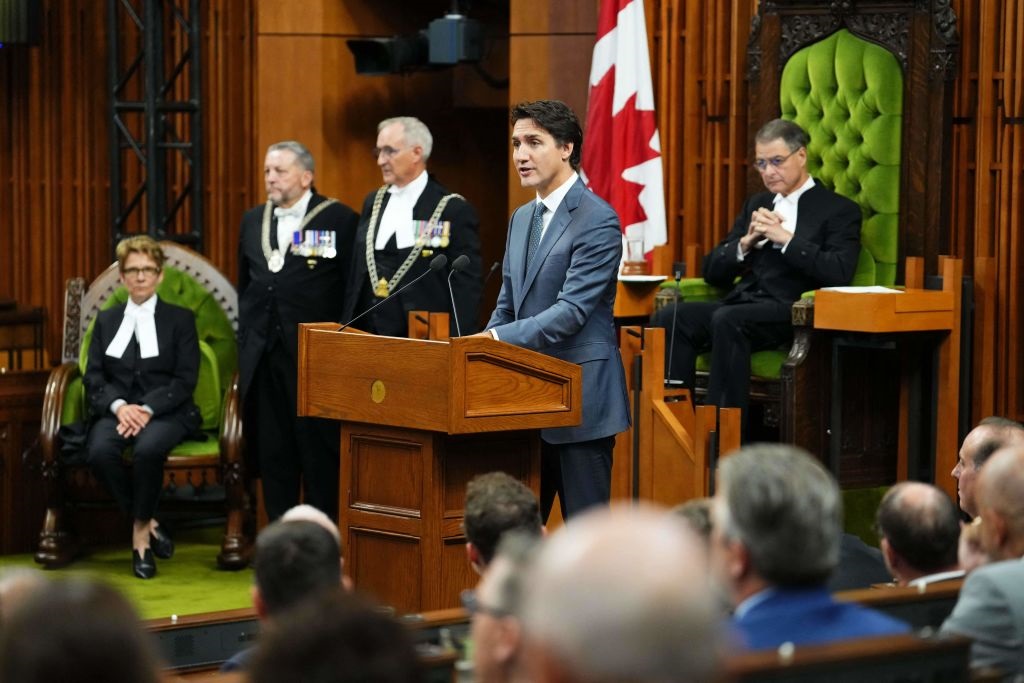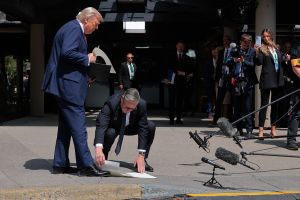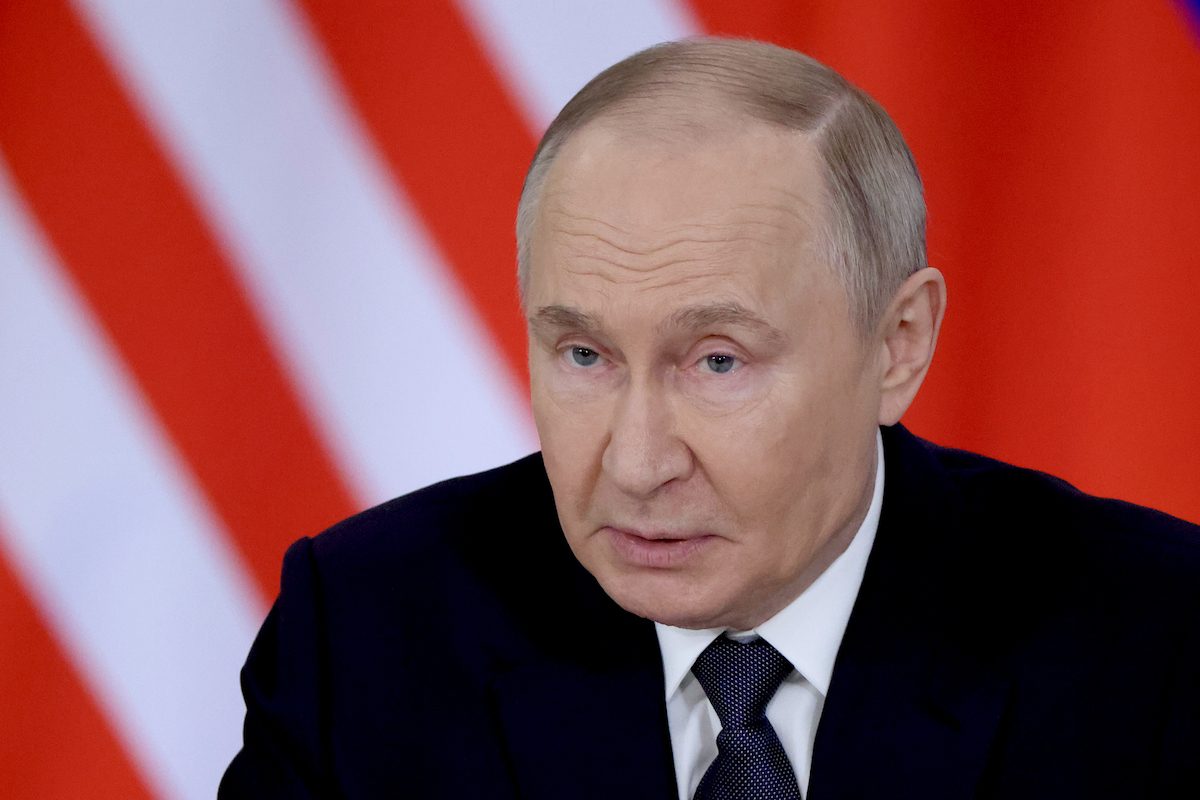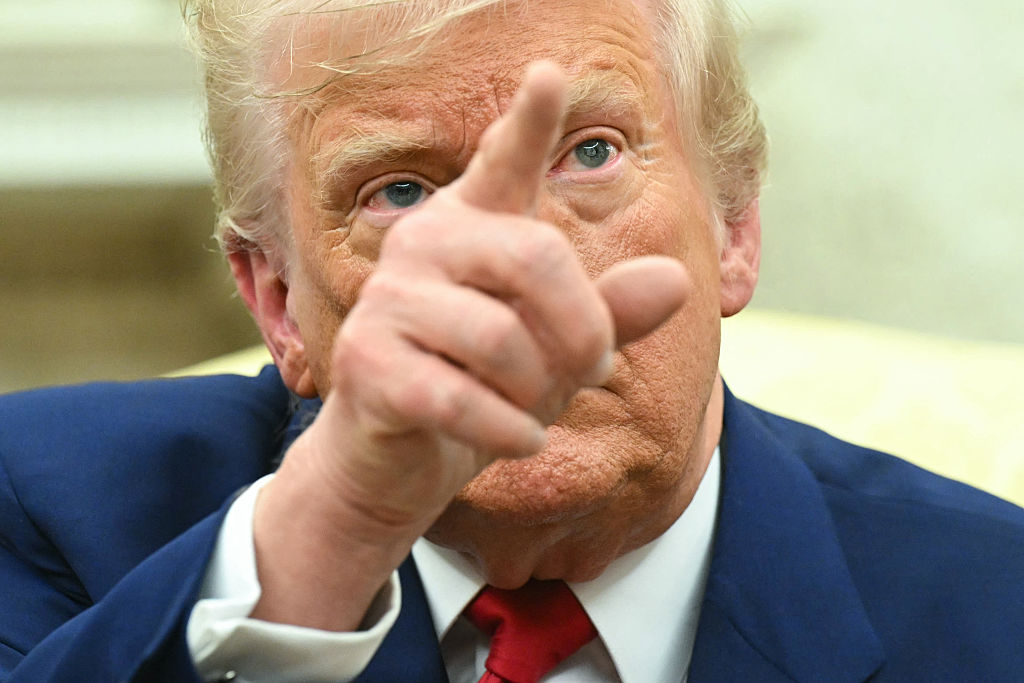Vladimir Putin invaded Ukraine in February last year. By the end of March, the streets of cities all over the world were spontaneously draped in blue and yellow. It was a moving moment. The outpouring of solidarity seemed to reveal that the instinct to stand up to tyranny has not yet been forgotten in the complacent and self-indulgent decades that followed World War Two.
But it also felt rather vicarious. We live in an age in which the drive to express national pride has been driven underground by memories of empire in Europe and the shadow of slavery and segregation in America. For many, especially on the left, imported Ukrainian nationalism has become a kind of patriotism by proxy, a sublimated expression of a repressed desire.
On Friday, one prominent Canadian liberal became so consumed by the ecstasy of release that he made a bit of a fool of himself. I write, of course, of the House of Commons speaker Anthony Rota, who brought deep embarrassment upon “the parliament of Canada and by extension to all Canadians” (in the words of Prime Minister Justin Trudeau) during a visit by Volodymyr Zelensky.
Gesturing grandly to the public gallery in Ottawa, Rota had announced that parliament was in the presence of “a Ukrainian hero, a Canadian hero,and we thank him all for his service.” The gray-haired gentleman was visibly overcome as he received a standing ovation and applause from both sides of the House. This was the ninety-eight-year-old World War Two veteran Yaroslav Hunka, who had fought the Russians in a volunteer division that was viewed by many Ukrainians at the time as a step towards independence. The problem, of course, was that Hunka had fought for the SS.
Fast forward several days, and Rota has become a figure of both contrition and mockery. On Sunday, he issued a statement saying he had “subsequently become aware of more information which causes me to regret my decision” to honor the former SS soldier. It seems that in his enthusiasm to orchestrate a scintillating moment of patriotic theatre, he had somehow forgotten that Russia was a western ally in World War Two. “I particularly want to extend my deepest apologies to Jewish communities in Canada and around the world,” he added, lamely. (The Nazi era is indeed a painful subject for Jews, but there is no evidence that the division in which Hunka served, the 14th Waffen Grenadier Division of the SS [1st Galician], played a part in the Holocaust.)
For a senior politician to call upon parliament to honor an SS veteran is simply not a good look
You could argue, I suppose, that although the SS in general was condemned at Nuremberg, Hunka’s division itself was not found guilty of war crimes. It has been accused of several atrocities against civilians, including various massacres of Polish villagers, but the evidence has not been clear enough for a definitive ruling by either the Canadian government or the Canadian Jewish Congress. And while the division was made up only of Galicians, due to Himmler’s belief that they were more “Aryan-like,” it was far from being the most fanatical body within the SS.
But this would be to miss the point. For a senior politician to call upon parliament to honor an SS veteran is simply not a good look. Moreover, the 14th Waffen Grenadier Division is a deeply divisive topic in Ukraine. While nationalists believe that its collaboration with the Nazis was outweighed by its heroism in fighting the Russians, moderates disagree.
The glorification of collaborators was taboo in the country until the early 2000s, when the nationalist movement won state recognition for their fight against the Soviet Union. And after the Russian invasion of Crimea in 2014, retrospective sympathy for the collaborators increased. In May 2021, when nationalists staged a so-called “embroidery march” in Kyiv to mark the seventy-eighth anniversary of the controversial division’s establishment, President Zelensky spoke out against the embroidery marches. “We categorically condemn any manifestation of propaganda of totalitarian regimes, in particular the National Socialist, and attempts to revise truth about World War Two,” he said at the time. One can only imagine how his toes must have curled two years later in Ottawa.
This was the context into which Rota blundered. Hunka is one of his constituents; one can only imagine that the liberal politician heard the words “Ukraine,” “Russian” and “war hero” and heard a narrative that fitted his politics. Did he know that Russia was on the side of the Allies in World War Two? If he did, it is striking how quickly he forgot it.
Rota was hardly the only one to look stupid. The way in which the rest of Canada’s parliament unquestioningly joined the applause spoke volumes about the bovine willingness of the political classes to accept narratives that “feel right.” As Saul Bellow put it: “A great deal of intelligence can be invested in ignorance when the need for illusion is deep.” The Canadian parliament richly deserves its mockery.
This article was originally published on The Spectator’s UK website.

























